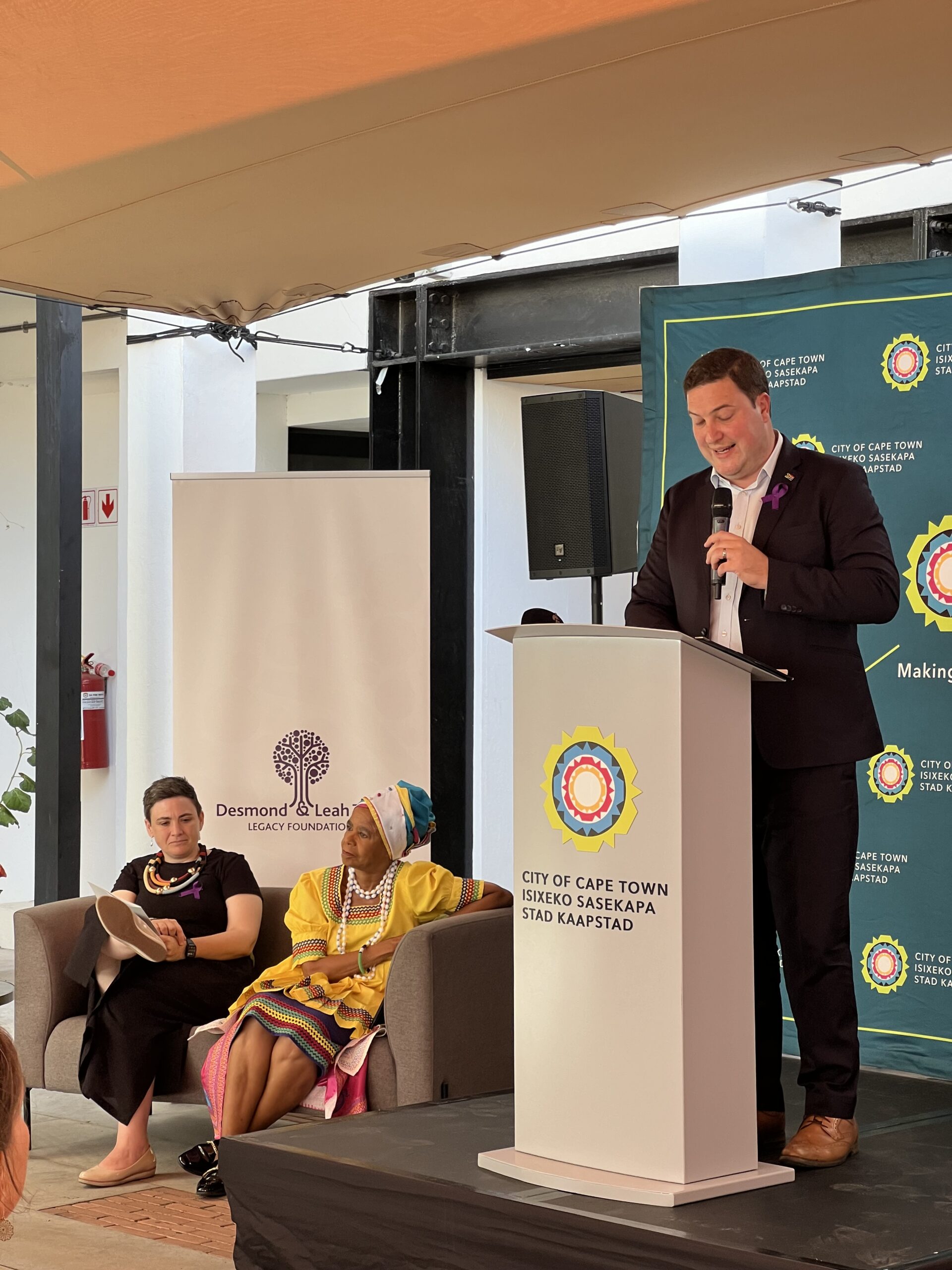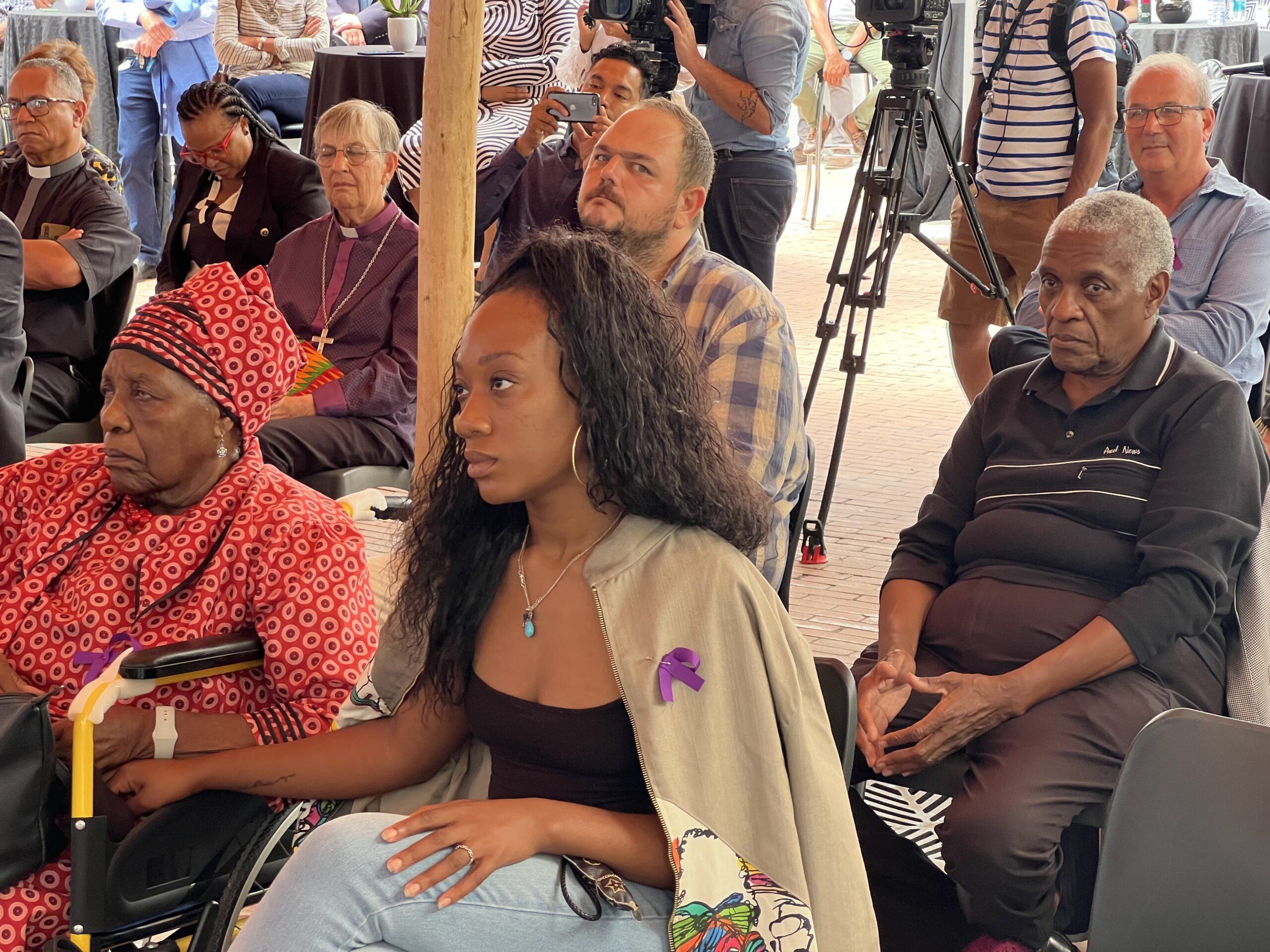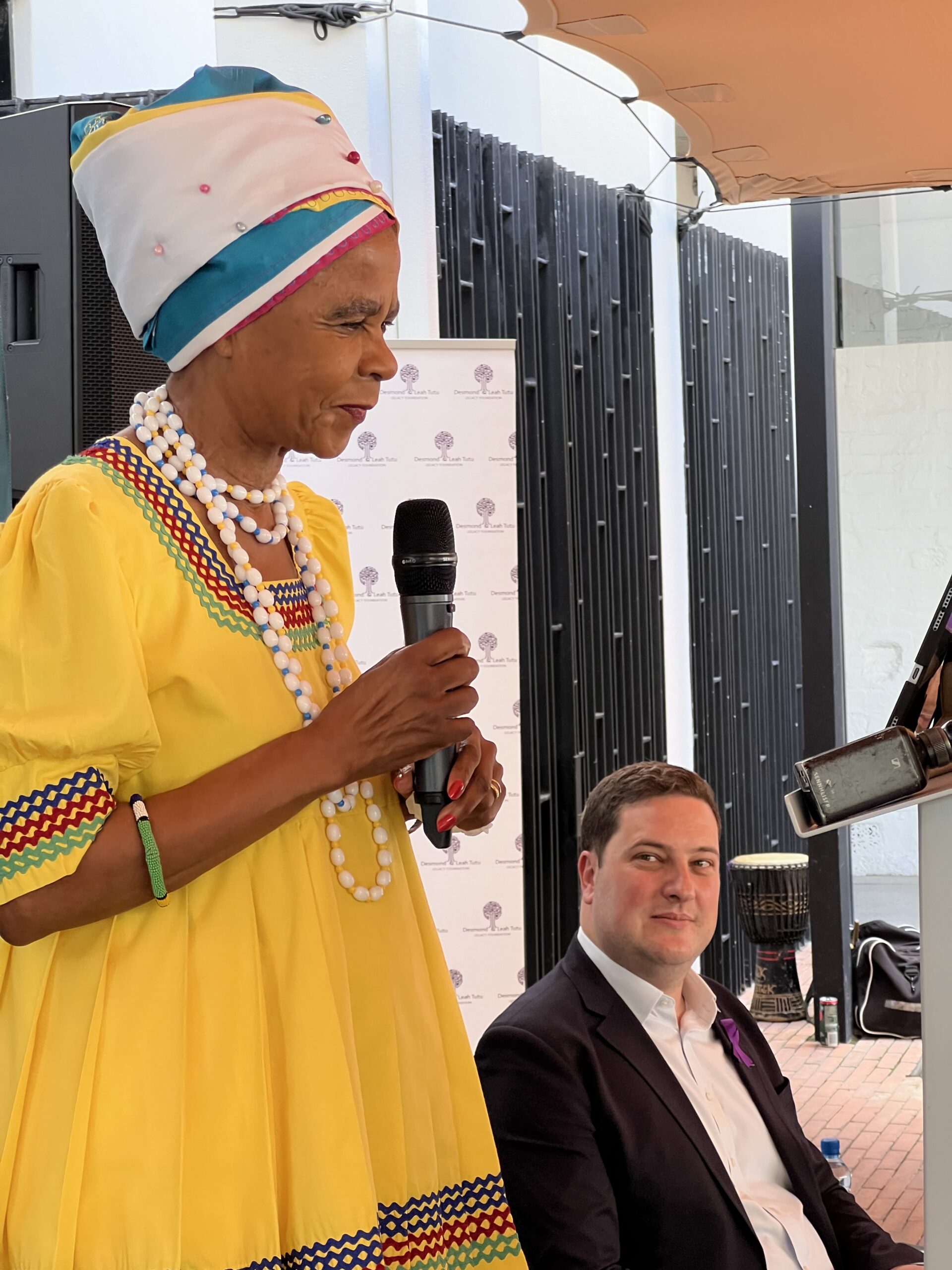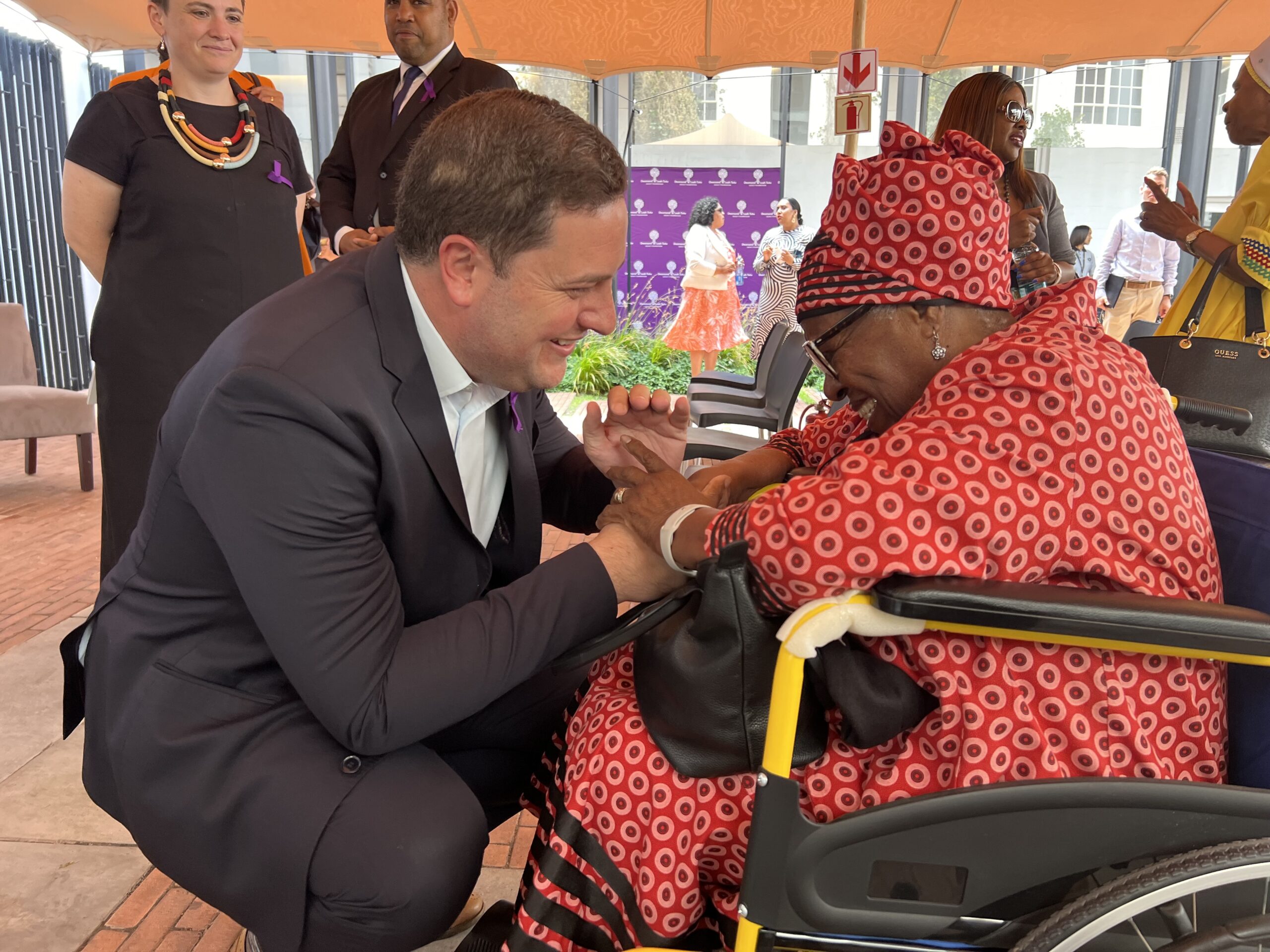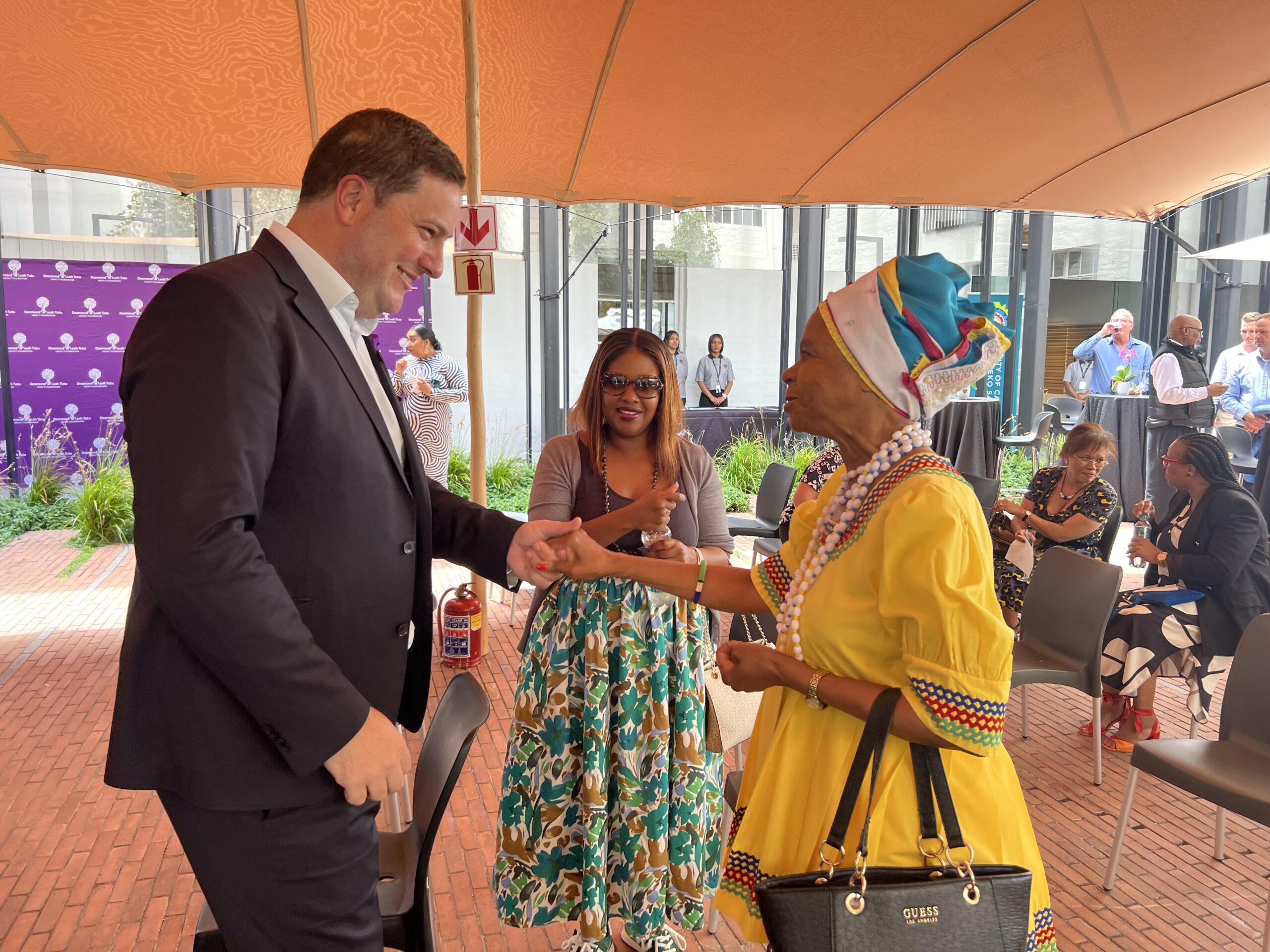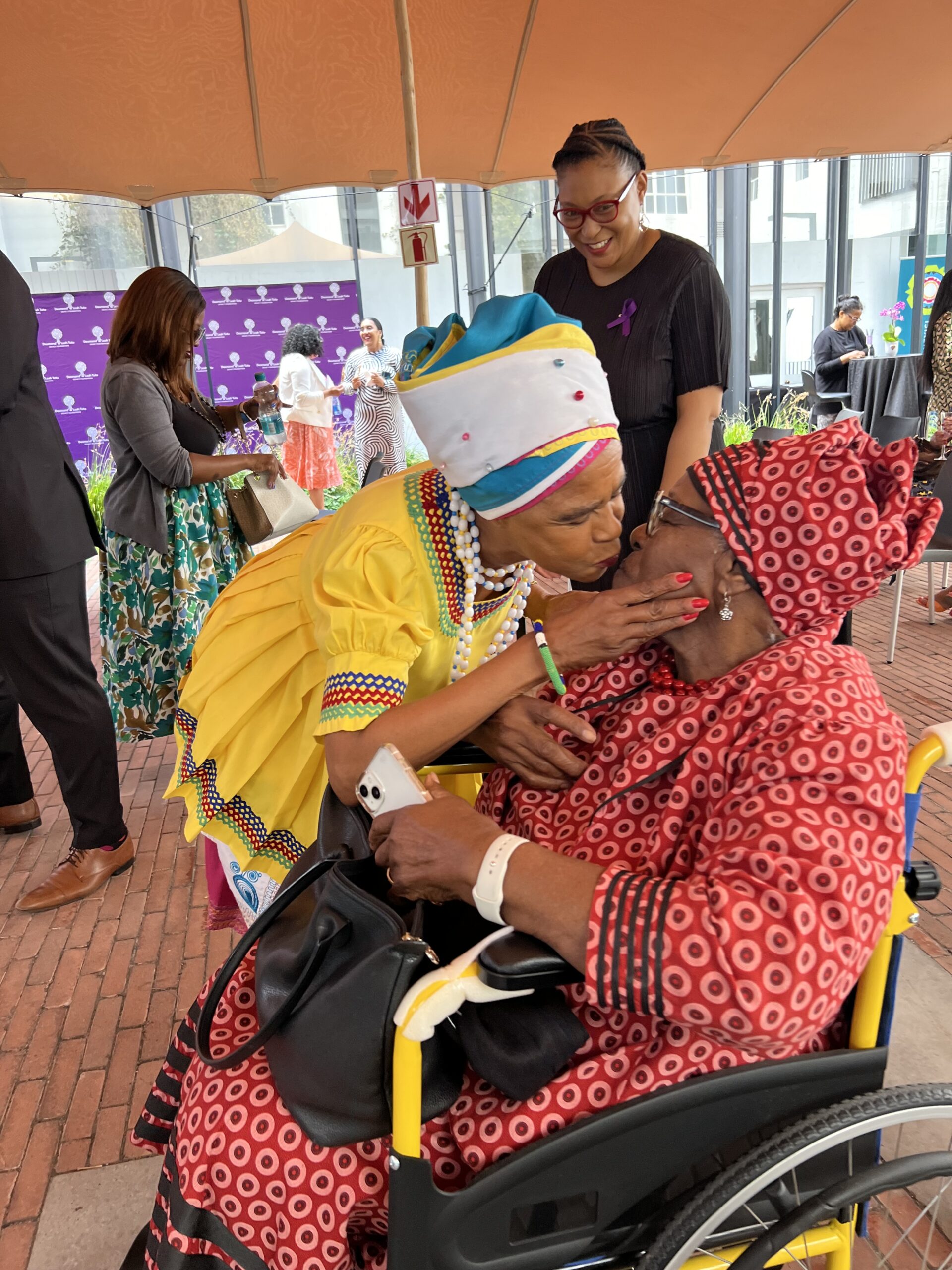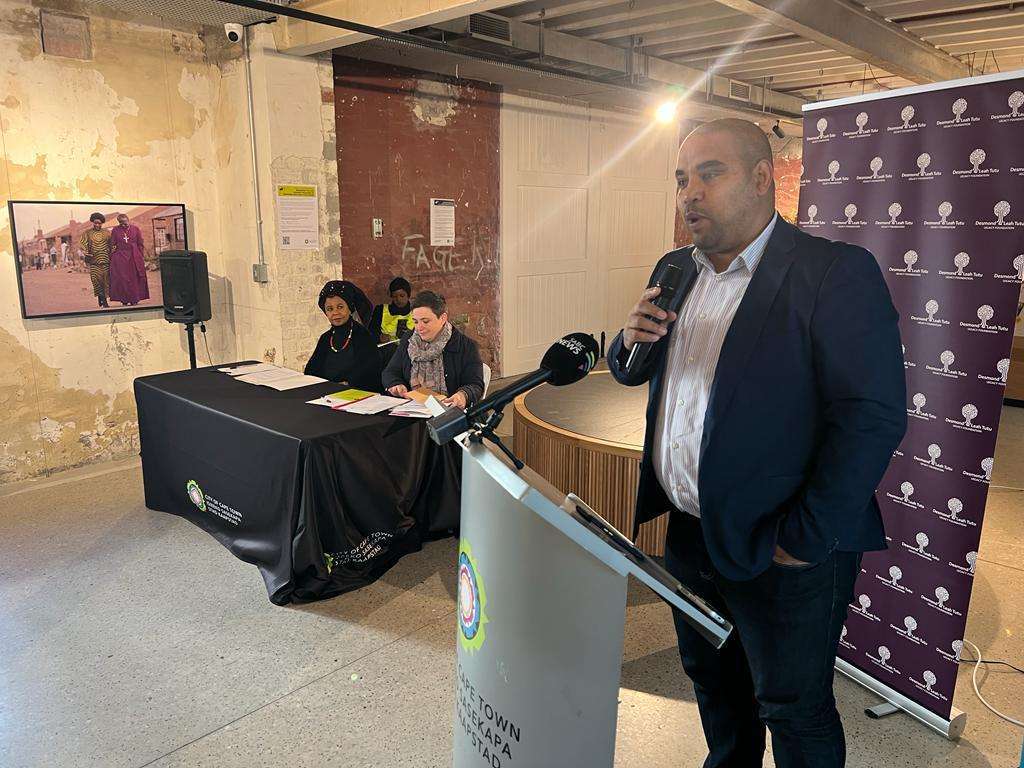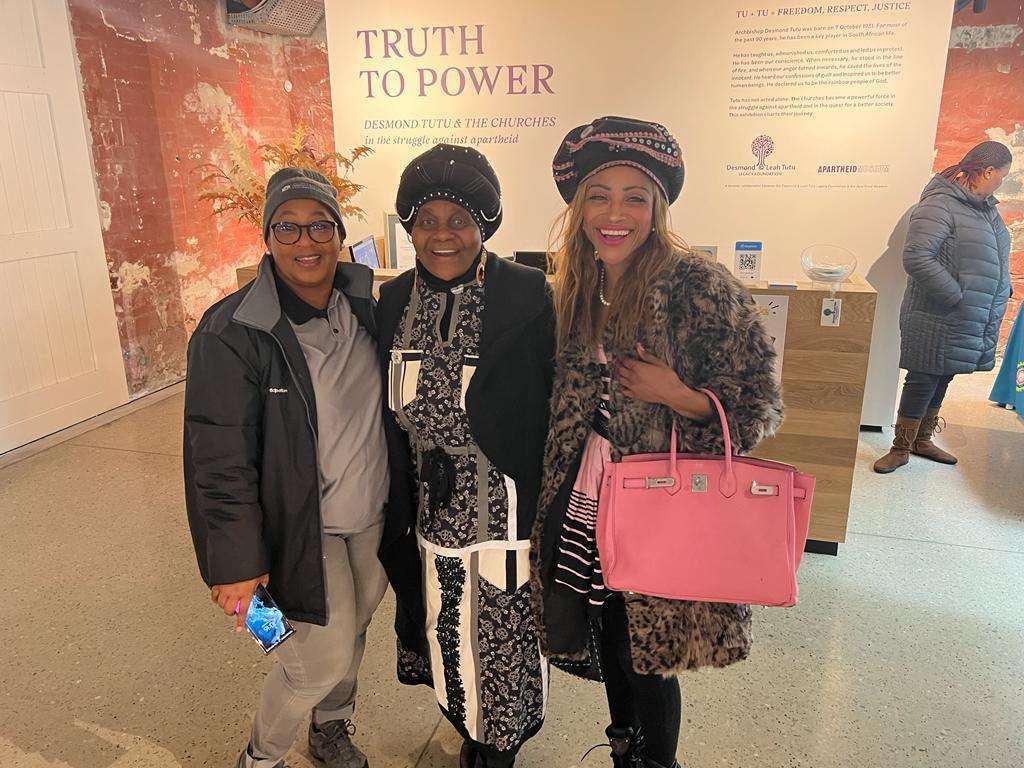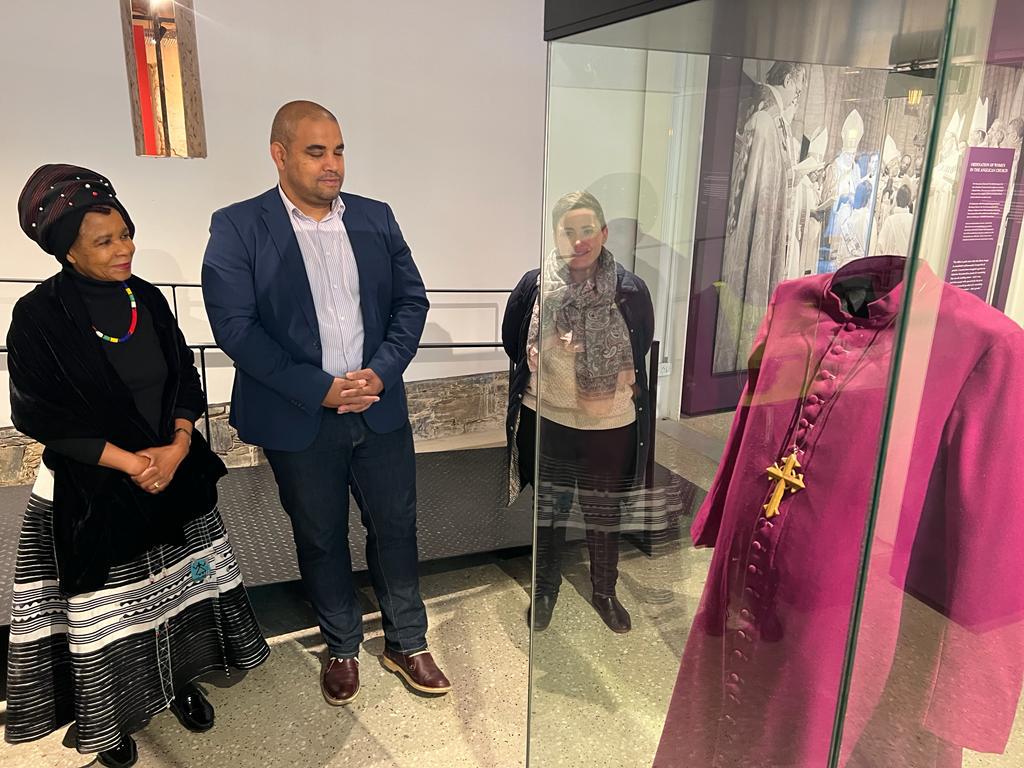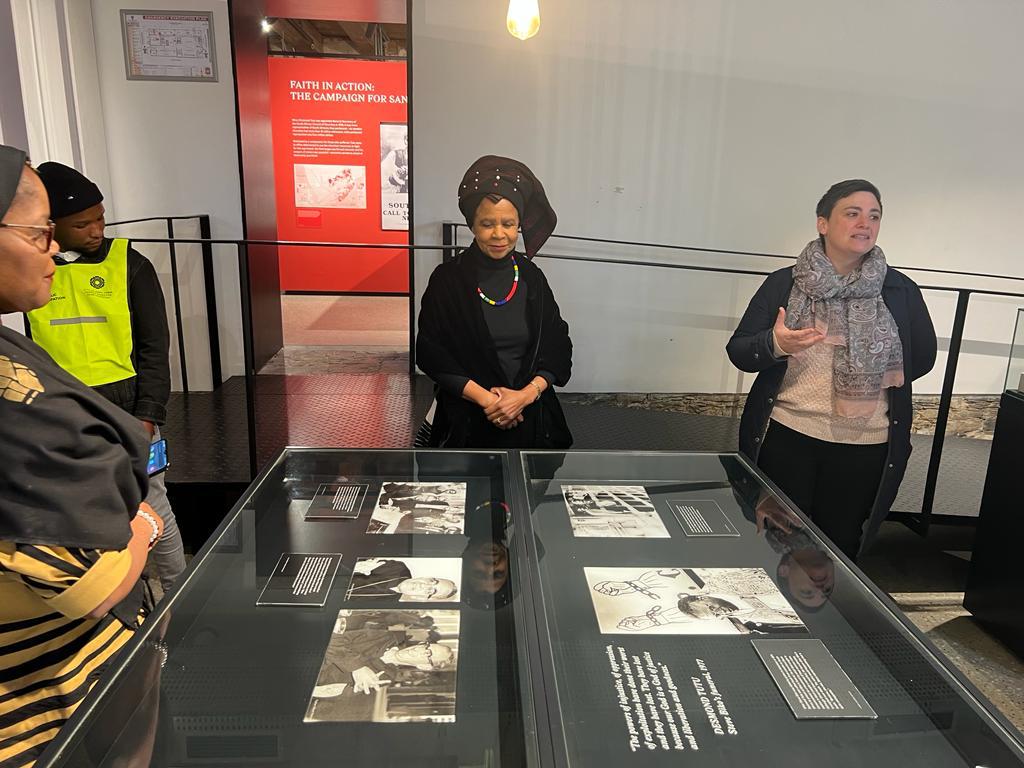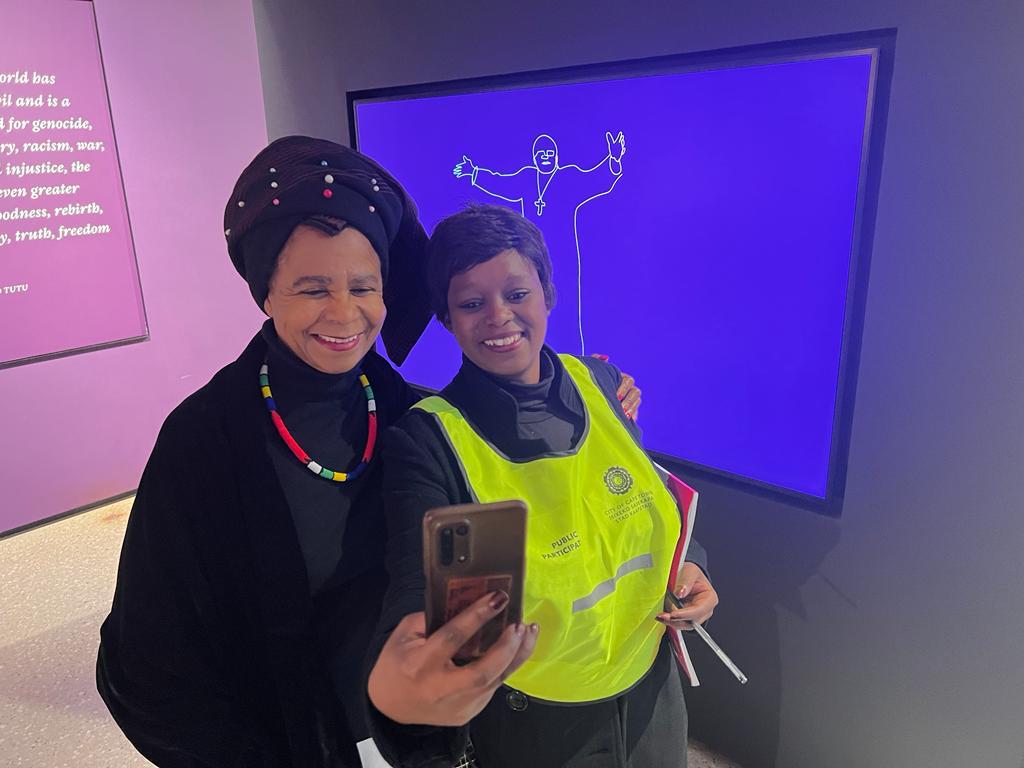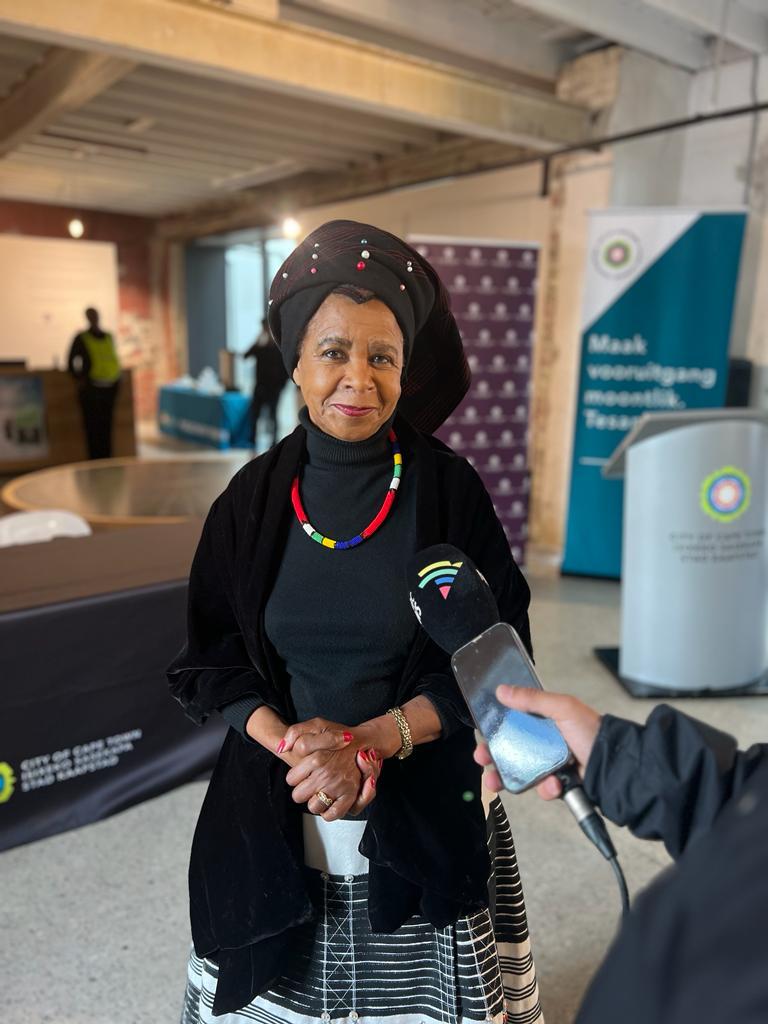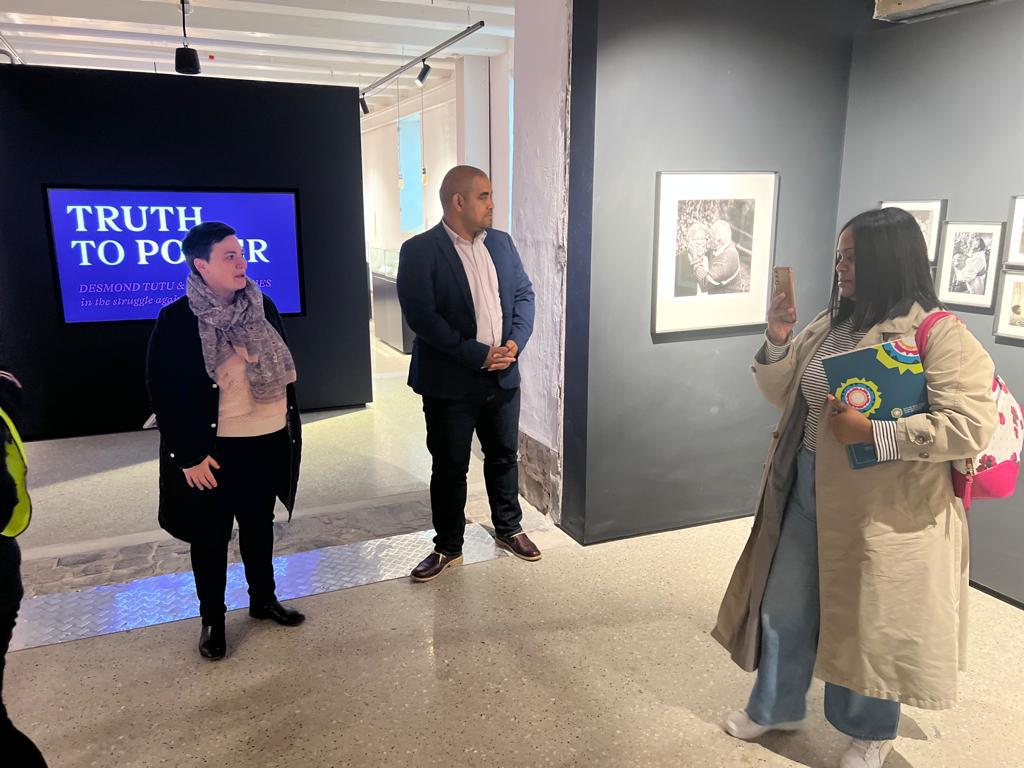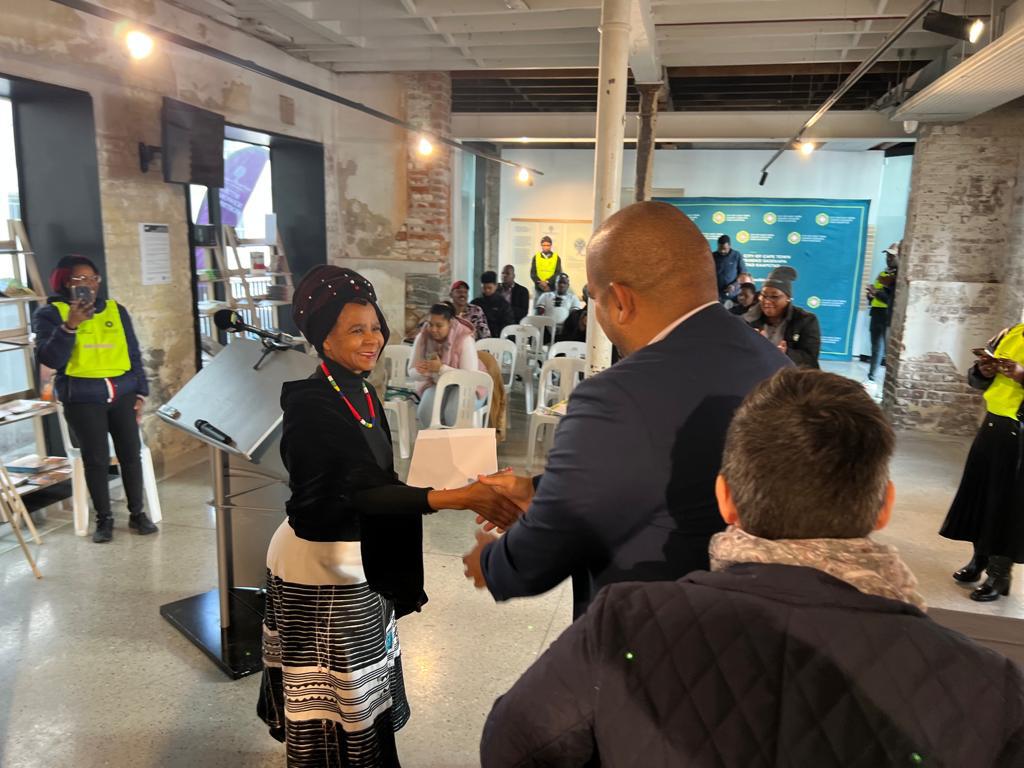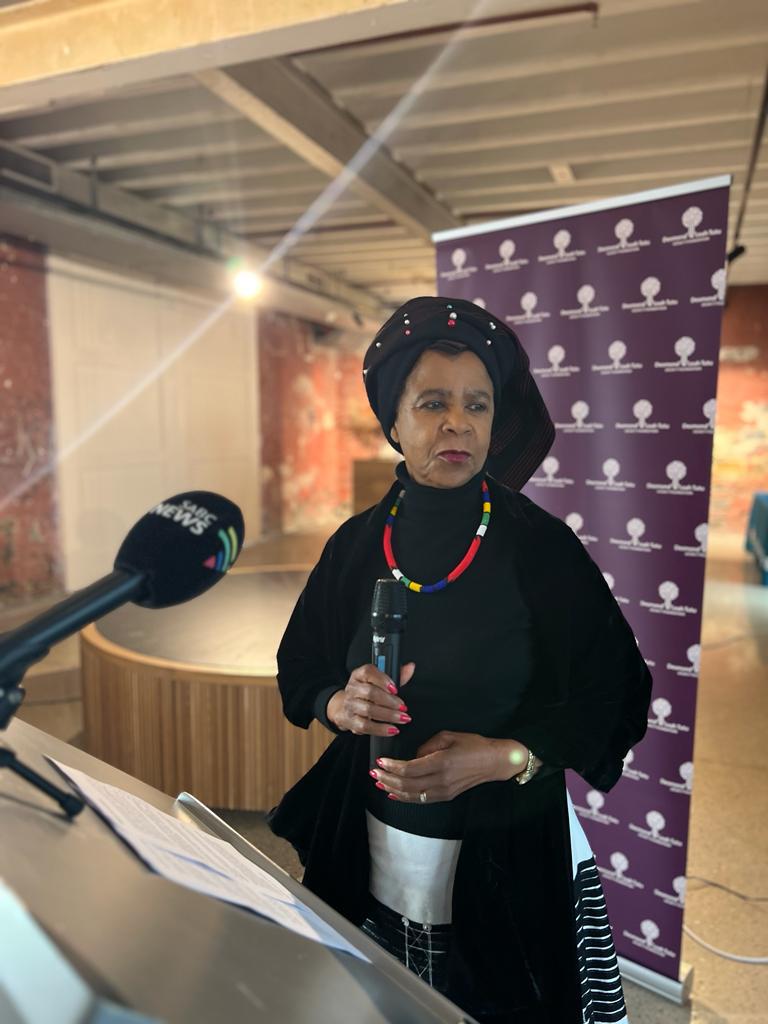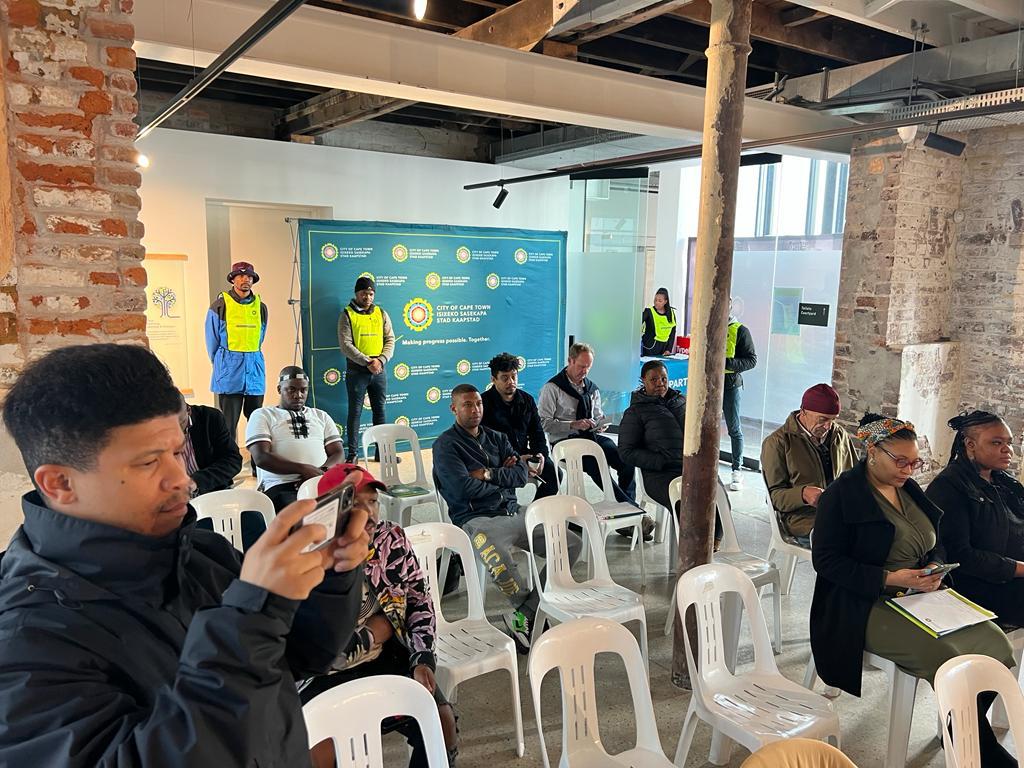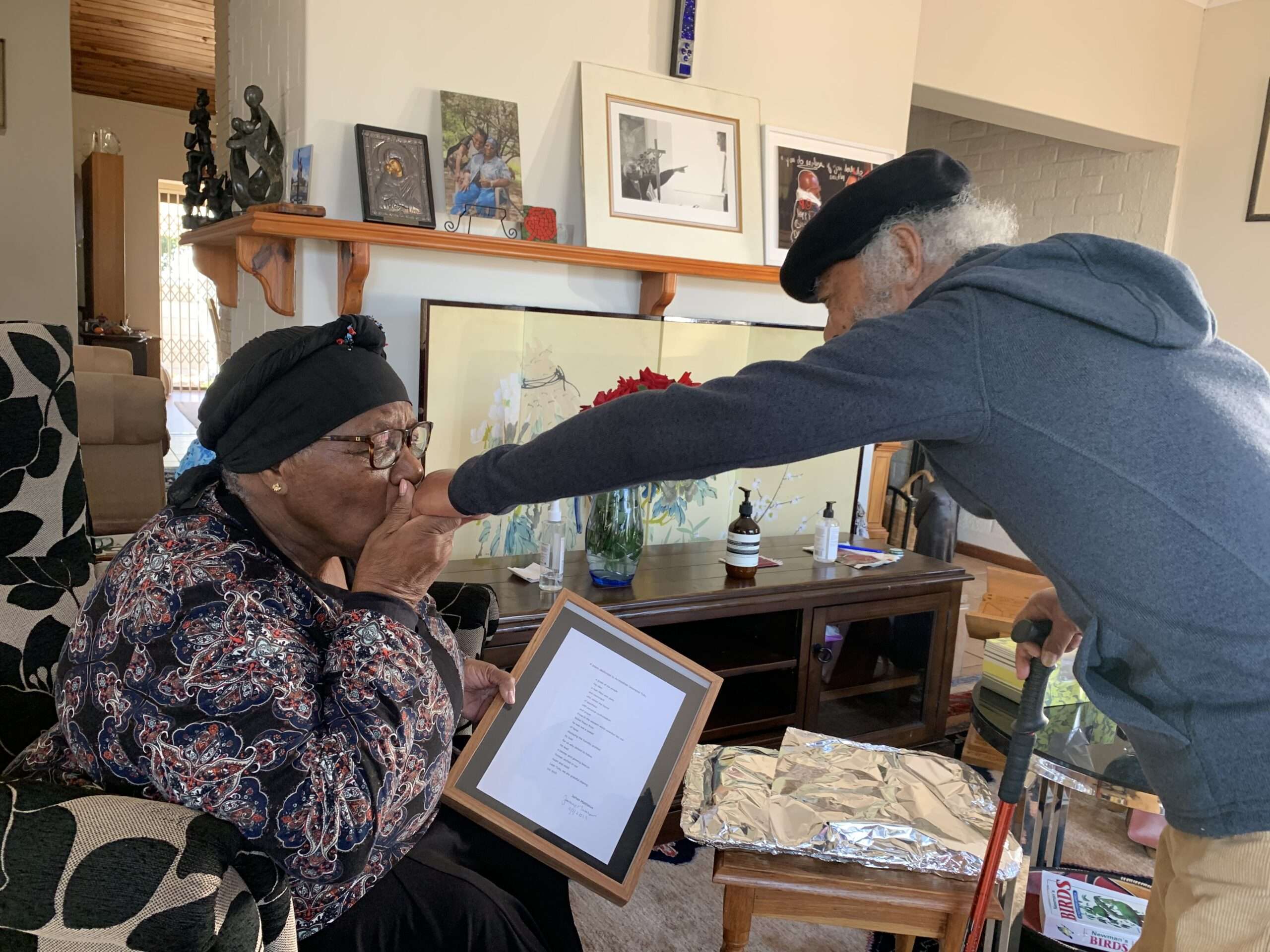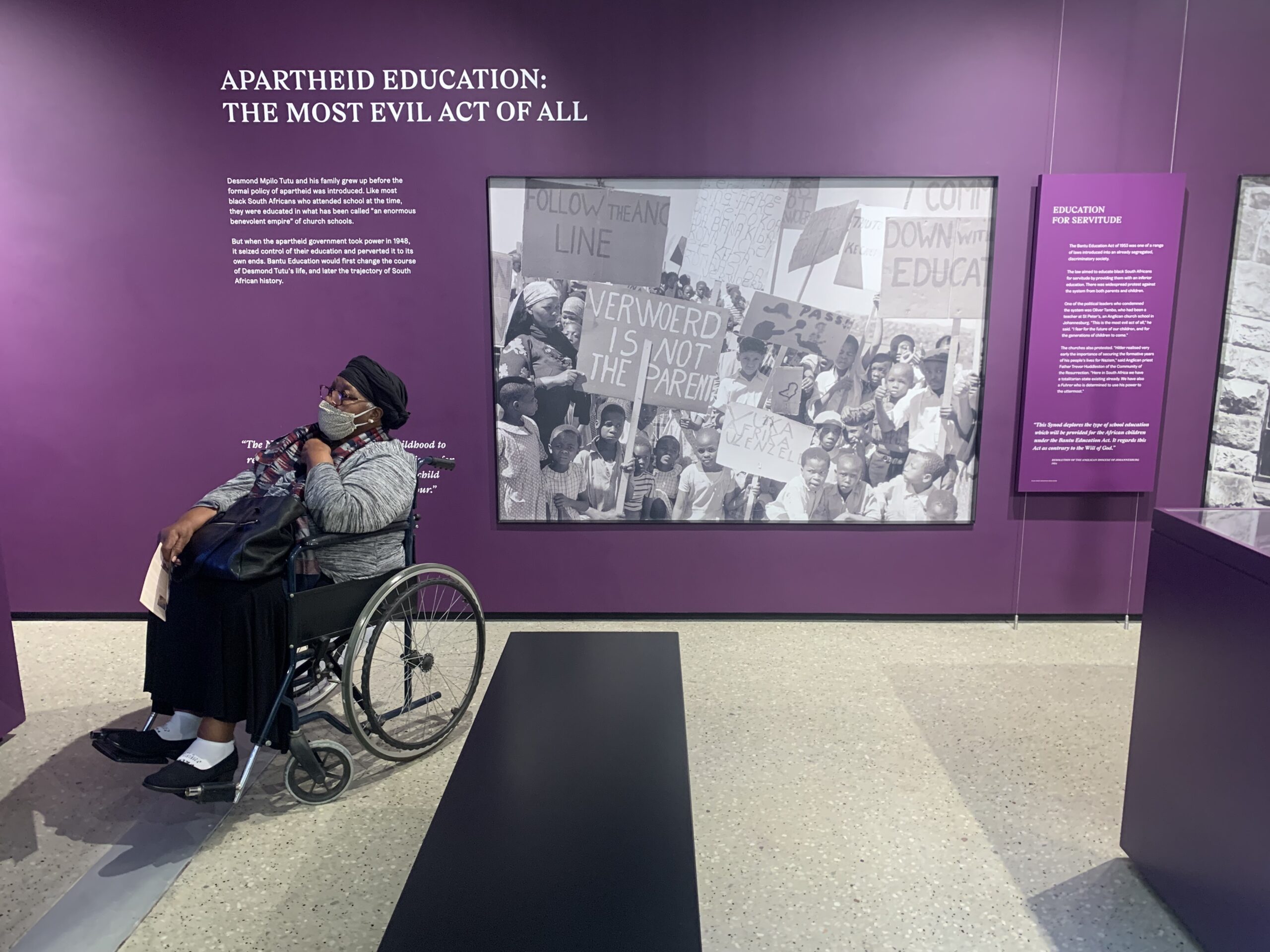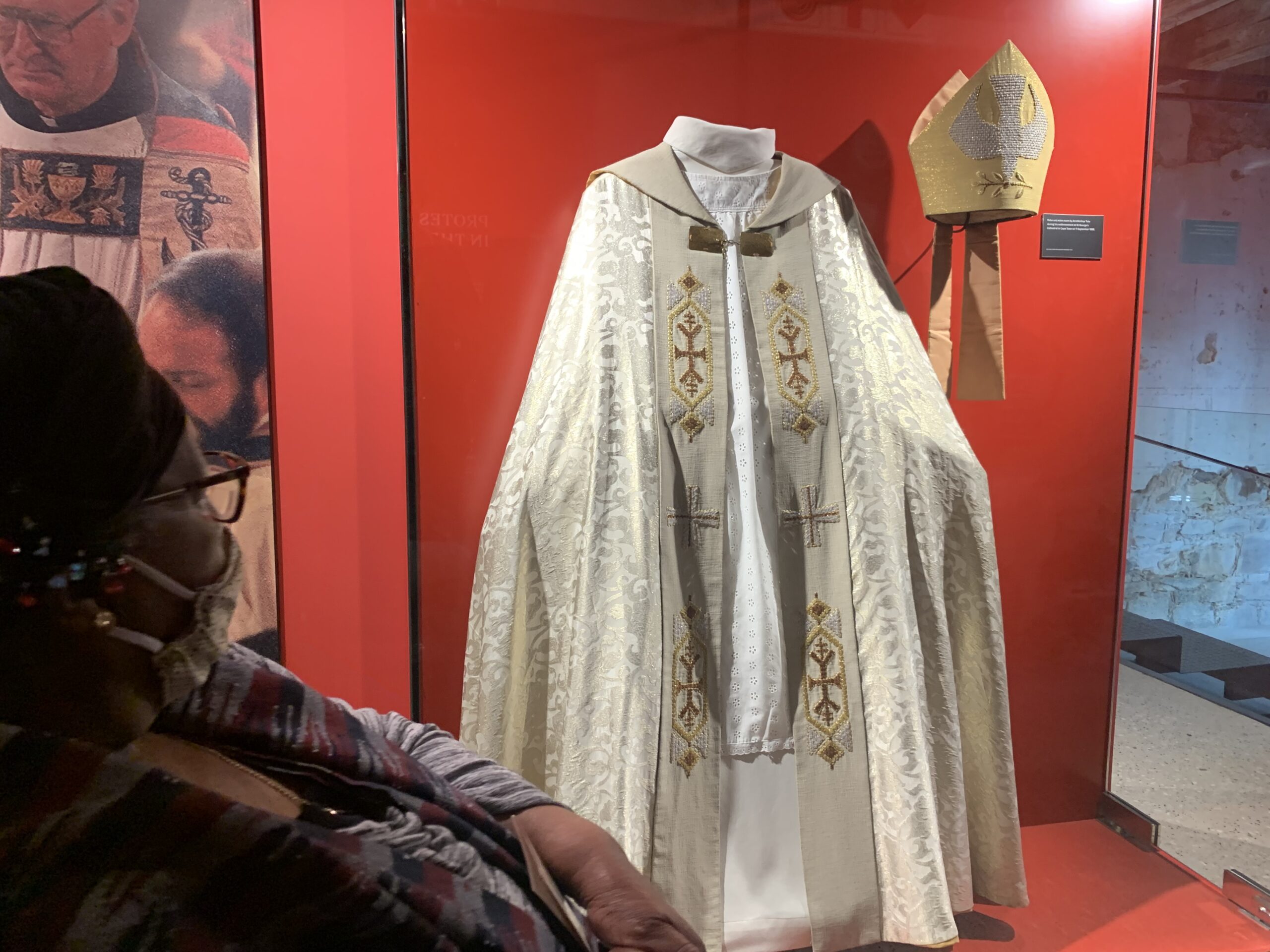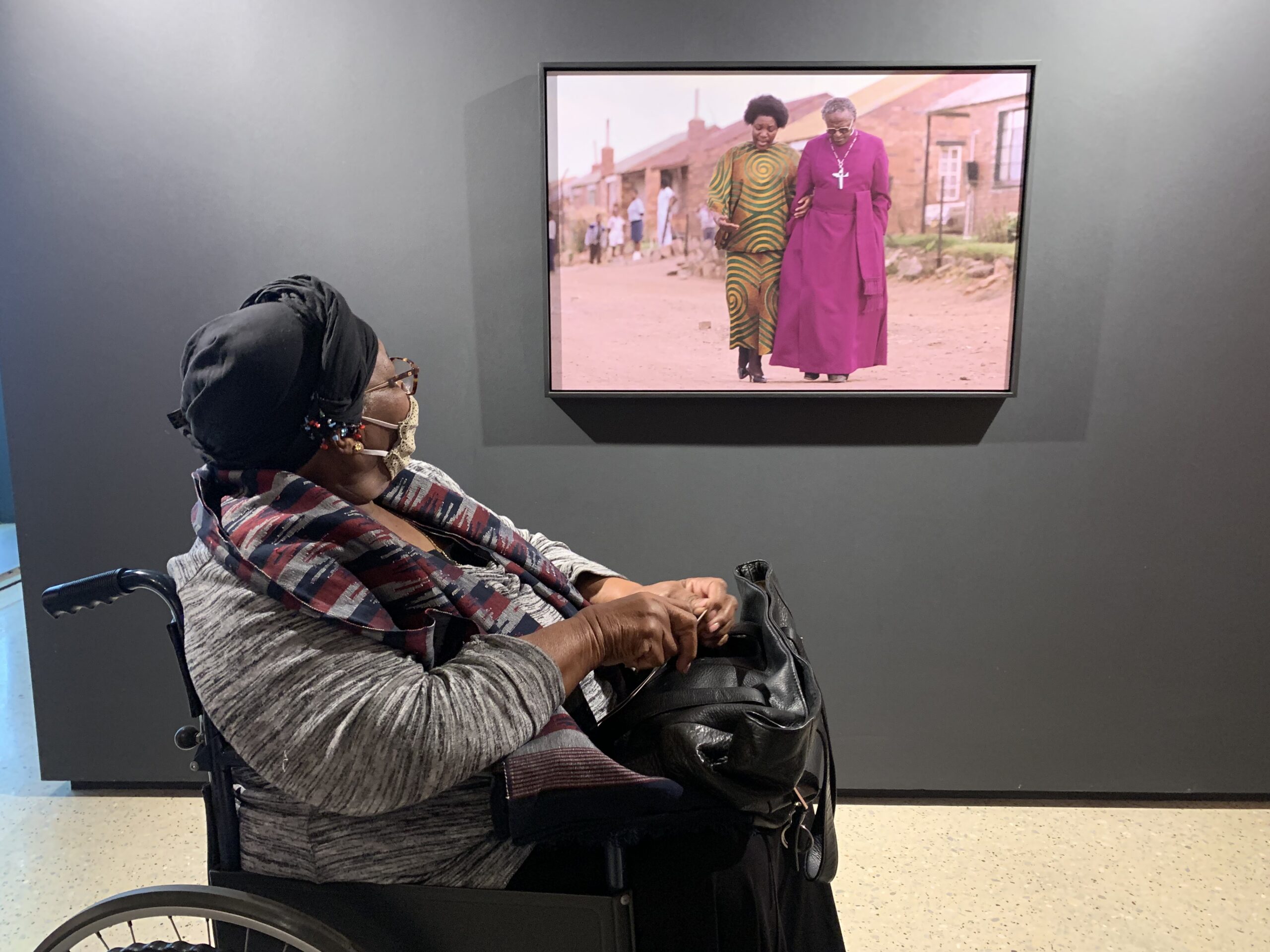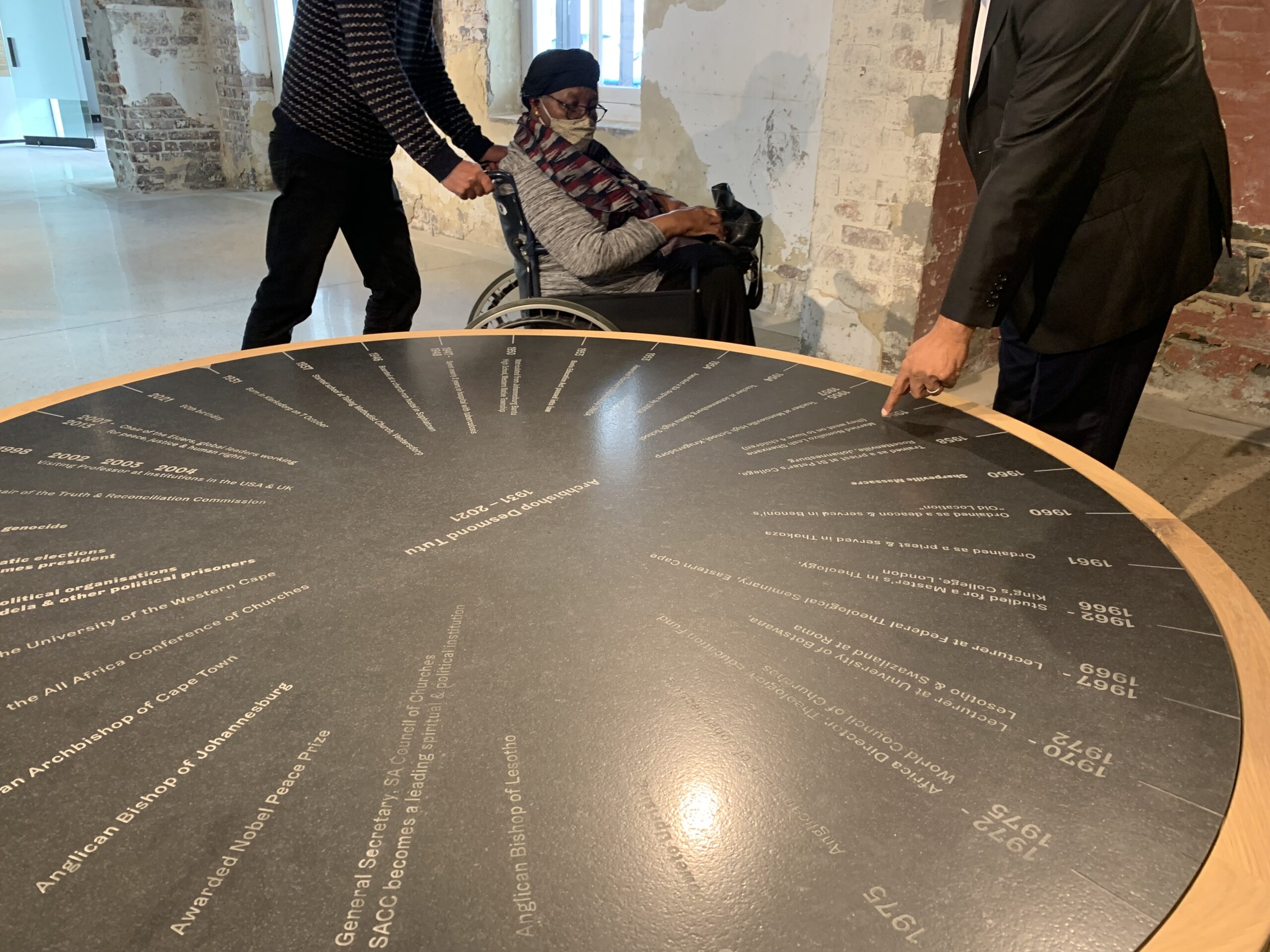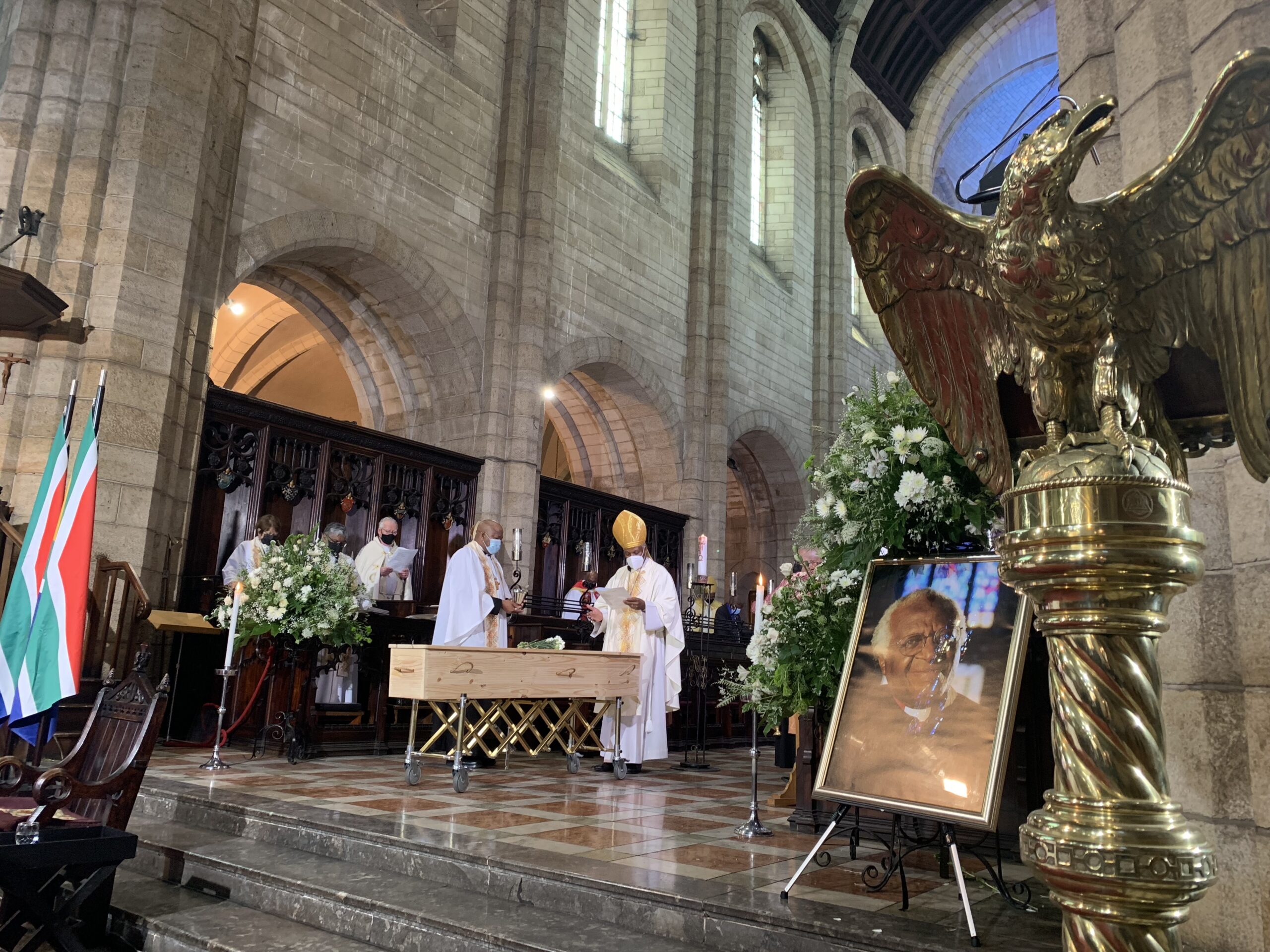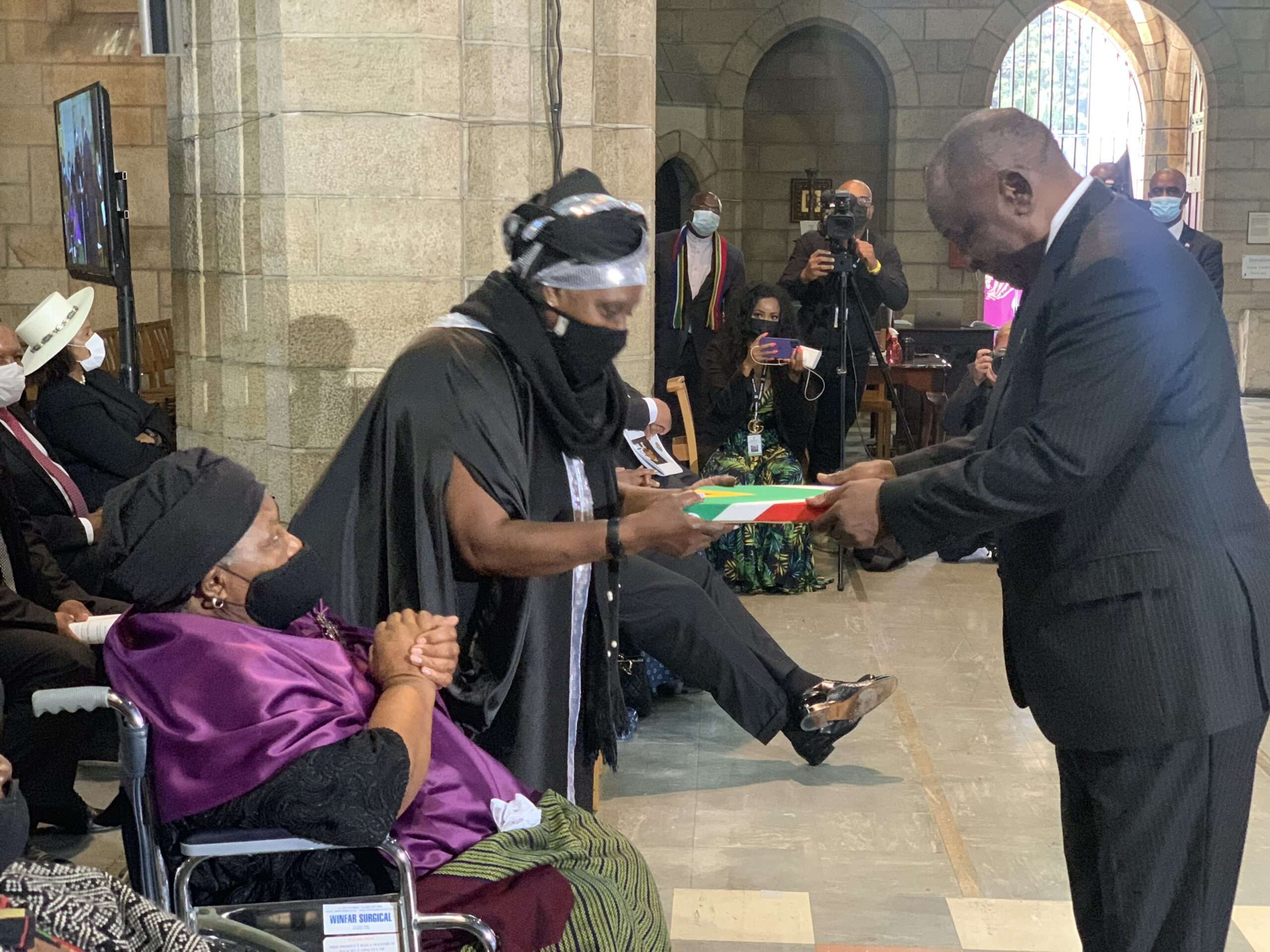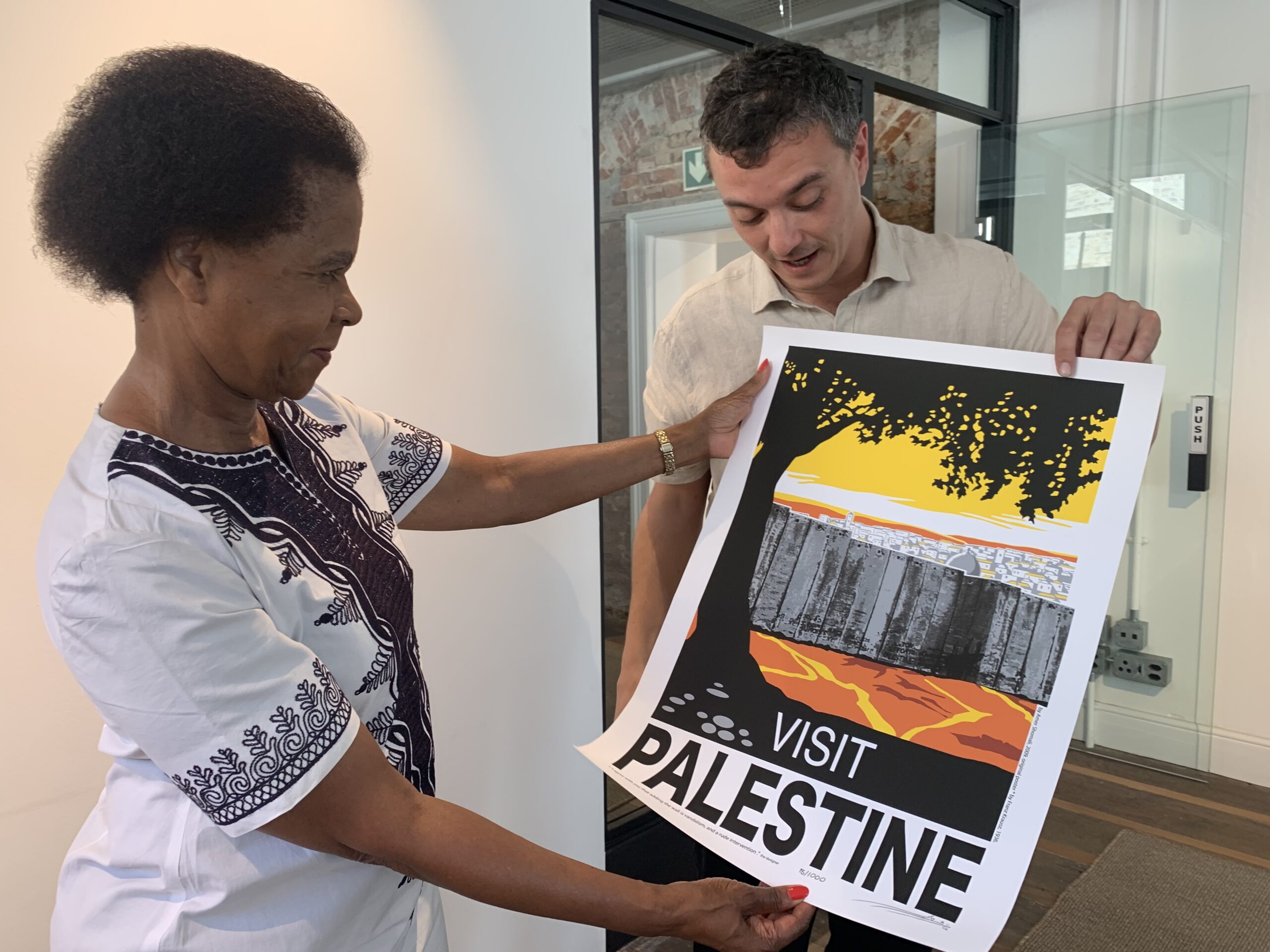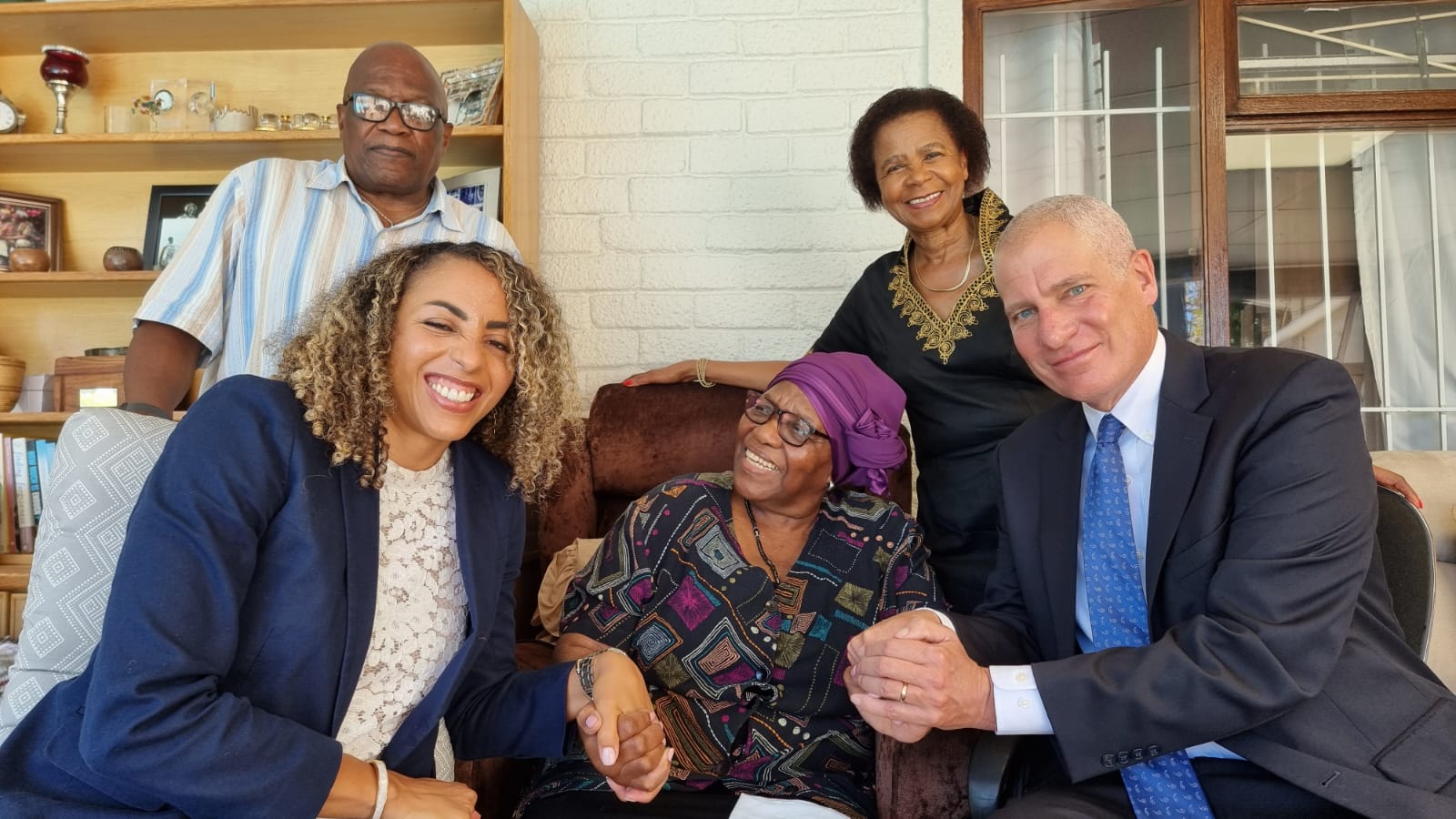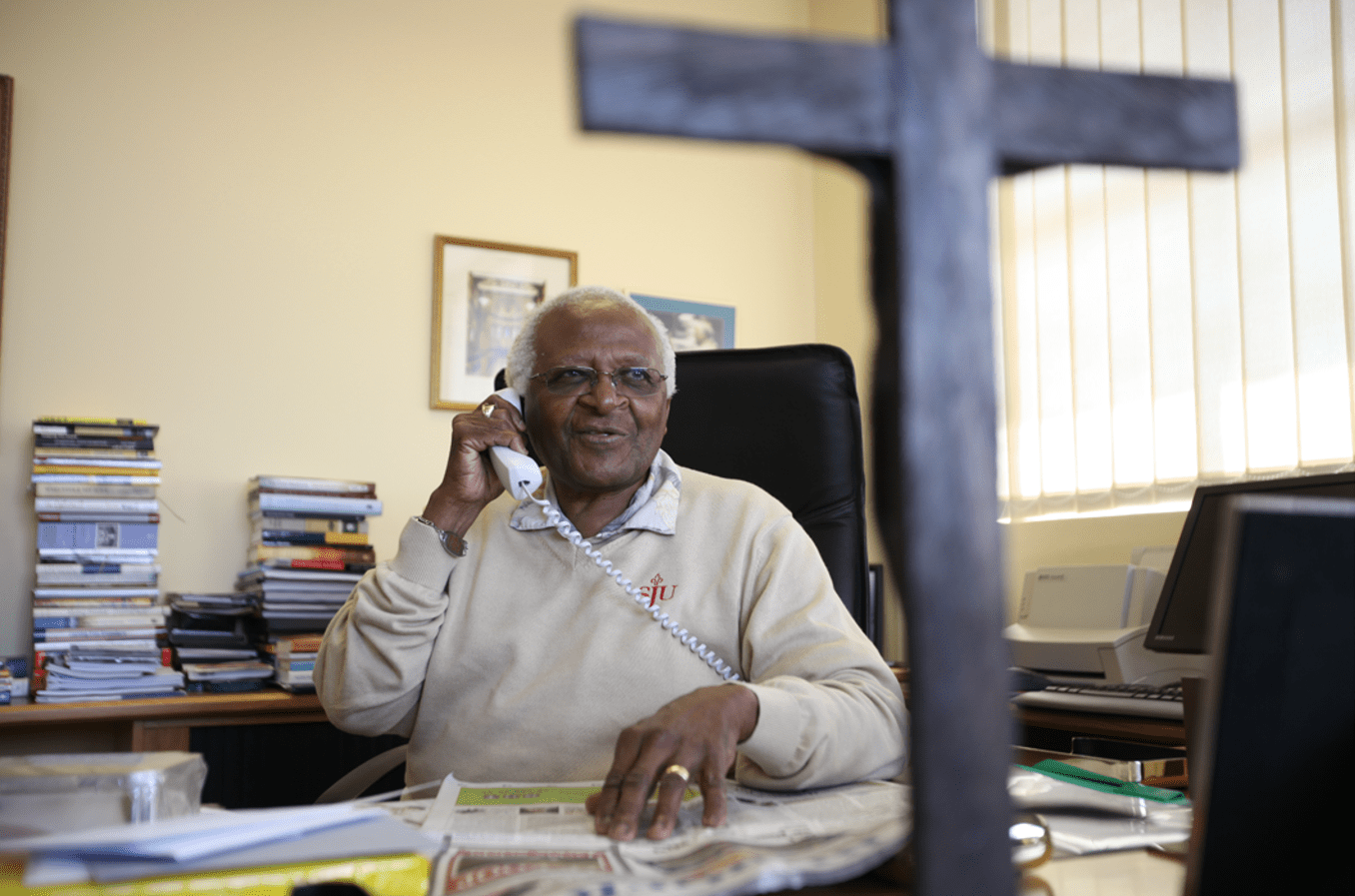DESMOND & LEAH TUTU HOUSE
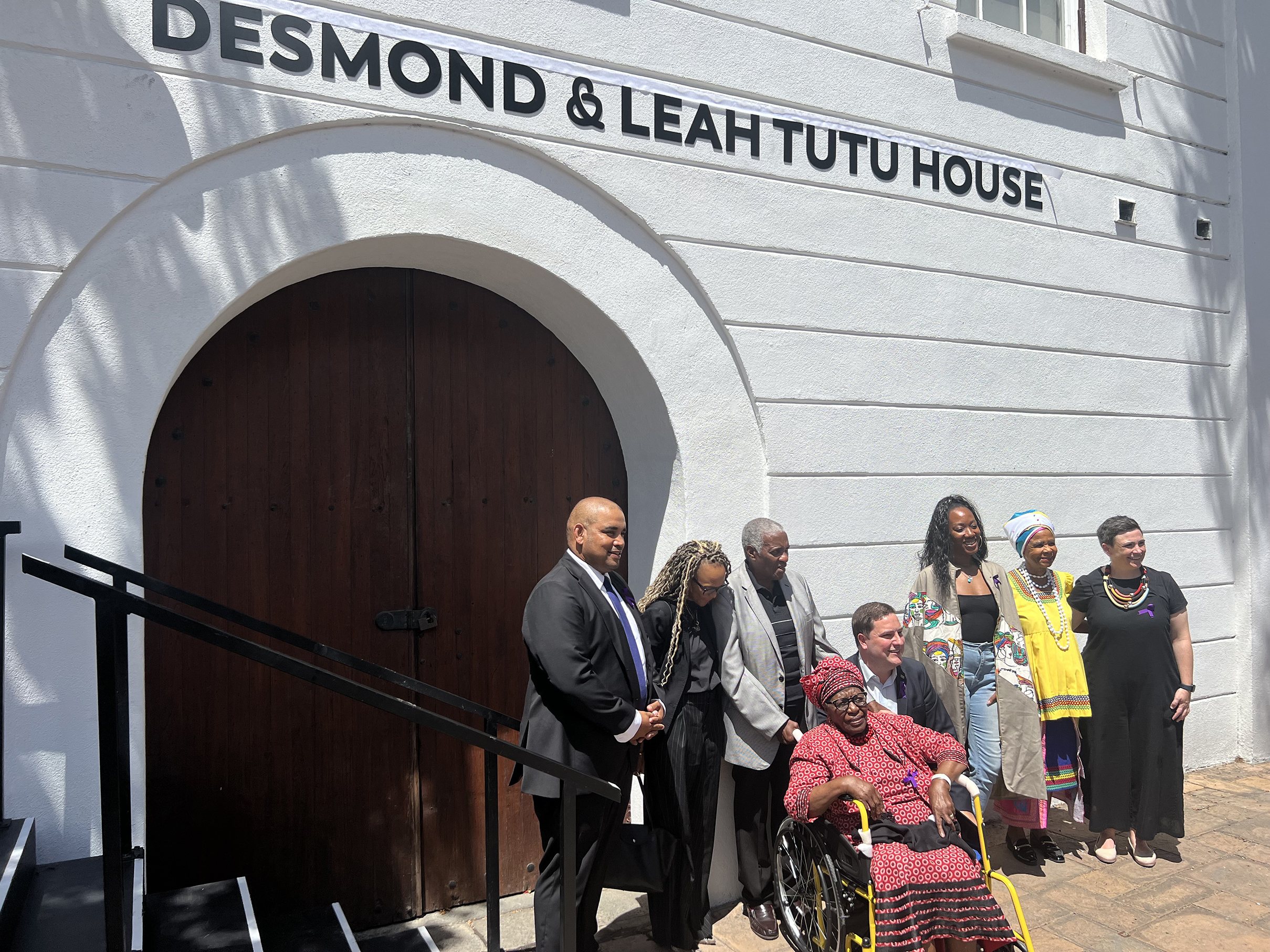
Address by Dr Mamphela Ramphele at the ceremony on 20 February 2024 to rename a historic building in Cape Town, Desmond & Leah Tutu House.
Desmond & Leah Tutu House will forefront Arch’s healing ministry
There was a thought-provoking article in City Press this week reflecting on the Netherlands’ declaration of a “Slavery Memorial Year” to mark the 150th anniversary of abolition.
The Dutch were leading protagonists in the slave trade for 300 years. They shipped more than 600 000 Africans to the Americas, and enslaved up to a million Asians.
Between 1652 and 1807, the Dutch East India Company brought 60 000 slaves to South Africa. Some of them were put to work right here, constructing what was to become known as the Old Granary.
The gist of the City Press article was that while the Netherlands’ declaration of a Slavery Memorial Year prompted heated national debate in former Dutch colonies in the Americas, and in Indonesia, South Africa’s response had been relatively muted.
The author speculates this could be because the horrors of the slave trade were overtaken in our national consciousness by the more recent horrors of apartheid.
One of the biggest problems we’ve been brewing over the 30 years of our democracy is under-acknowledging our past. This has profoundly negatively impacted the national healing process.
While the country transitioned, politically, from apartheid to democracy, many people continue to lead the same lives, continue to live on the margins – now, with diminishing hope.
We talk about empowering black people and women, but the face of poverty remains that of a black woman – while incidents of gender-based violence go through the roof.
I don’t need to list the inequalities and continuing injustices many citizens live with today…
The bottom line is that we can’t build a successful democracy on foundations of injustice.
If we had properly acknowledged the past, and the necessity to heal, there would have been more focus on the restoration of dignity, and on redress; more accountability for apartheid murderers who thumbed their nose at the Truth and Reconciliation Commission; more self-esteem and less impunity. More justice.
The Archbishop understood this equation with great clarity.
The reverberations of history don’t self-medicate and disappear; they endure. They may remain dormant for years, but without healing they will return, as they have in the US, where descendants of slaves are organising class suits to receive compensation for multi-generational trauma.
It’s not too late.
That then-Mayor De Lille had the foresight to marry this grand remnant of the slave-era to Desmond and Leah Tutu created a profound symbol of healing in our city.
Our pledge to the people of Cape Town is to honour the names of our founders through working to position Desmond and Leah Tutu House as a headquarters for the healing of what the Arch termed the human family.
That’s all of us, Capetonians and South Africans, and the rest of our siblings, from Suriname to Malaysia to Palestine to Sudan…
Sisters and brothers…
The Arch was a pastor without borders, a teacher and a healer. The honorary degrees he received from top universities across the world collectively conferred on him the unique title of Doctor of the Soul.
Whether engaging young people living with TB in an impoverished township in Cape Town, politicians in parliament, academics at top universities, church congregations, or people at large – through engagements with the media – he exuded the same compassion and the same hope.
He travelled around the world to speak to people about the important issues of our time, often not in their first language, but everyone understood.
Once asked to describe the Archbishop, his dear friend Harry Belafonte responded: “He IS Martin Luther King Junior… He IS Mahatma Gandhi… He IS on the path and mission of Jesus Christ.”
How do we do justice to the legacy of such a person?
How do we continue to propagate Arch’s wide-ranging wisdom, on a plethora of topics, not as a mechanism to glorify him, but to re-use the valuable lessons he taught to navigate a more compassionate future?
What value can we contribute, in Arch’s name, to Cape Town becoming a recognised global centre for peace and humanity, as Atlanta in the US is recognised as a key centre for civil rights and justice?
Having a place of the space and stature of this historic building to call home is a critical advantage.
We feel very proud to have gathered today at Desmond and Leah Tutu House. Proud, and blessed to be able to celebrate this event in the presence of our dearly beloved Mrs Nomalizo Leah Tutu.
Honoured guests…
One of the advantages of calling this house, Desmond & Leah Tutu House, is that it creates a collective noun for the endeavours of its tenants, the sister organisations, the Desmond & Leah Tutu Legacy Foundation, and the Archbishop Tutu IP Trust.
The Foundation is externally orientated, developing programmes and relationships, from the permanent exhibition behind me, to the annual international peace lecture, to an array of projects engaging children and young adults on issues of peace, humanity and justice…
The Trust is internally orientated, managing copyrights, trademarks and permissions. It is undertaking the enormous task of gathering the Arch’s intellectual property together into a usable digital archive. It is undertaking the work in partnership with the Foundation and universities associated with Arch in the US, UK and South Africa.
Though separately structured, the Foundation and Trust often speak with one voice. That voice will henceforth emanate from Desmond and Leah Tutu House.
To conclude, I want to briefly take exception to William Shakespeare’s opinion, expressed though Juliet, in Romeo and Juliet, that what we name things is not a big deal.
“What’s in a name,” she asked? “That which we call a rose by any other name would smell just as sweet.”
South Africa has witnessed the re-naming of much public infrastructure over the past 30 years – mostly from names glorifying colonial and apartheid history to names of people who were involved in the country’s liberation.
There has been little allowance in the overall re-naming project for non-politicians, in general, and non-ANC members, in particular.
But, the thing is, dear Juliet, that that which we called HF Verwoerd Drive smells much sweeter now that it’s called after Bram Fisher.
“The Old Granary”, on the face of it, is a name that speaks to function. But it’s not an innocent name because it wasn’t an innocent function. Its function was to support the colonial extraction of resources, in this instance our food for European tables.
Desmond and Leah Tutu House has an altogether more perfumed sound.
That aside, it is wonderful affirmation of the Arch and Mrs Tutu, global citizens born in Klerksdorp and Krugersdorp, respectively, who embraced this Mother City as their home.
It is important acknowledgement of their role in our history.
Acknowledging the righteous among us, and addressing the injustices with which they wrestled, affords us the opportunity to exchange disturbingly unresolved reverberations of history with aspirations of healing and of hope…
… Which is more or less the intention behind the Dutch government’s year-long consideration of the impacts of its centuries of slavery.
Thank you to all in the City of Cape Town, in this and previous administrations, who translated the dream of establishing a Desmond Tutu Peace Centre in the city into the reality we behold today.
As Arch would have said: God bless you all.


